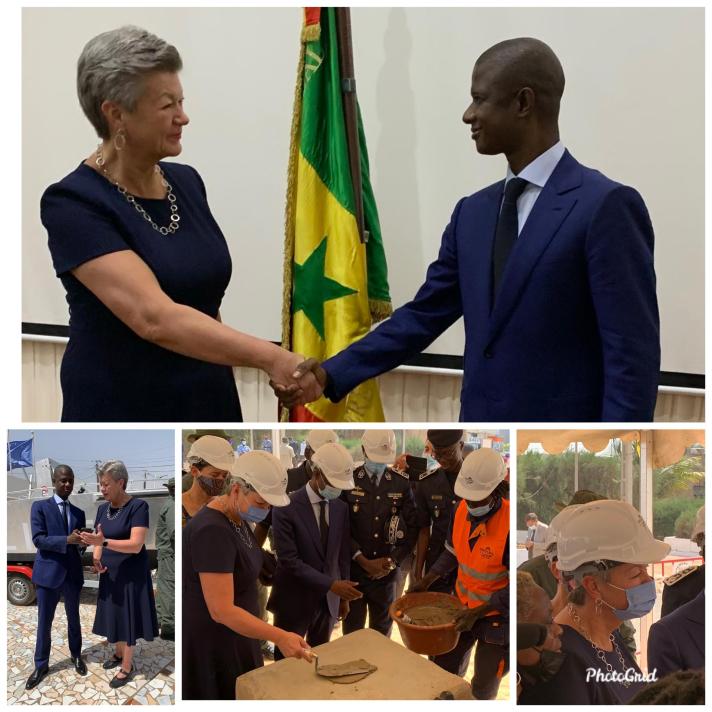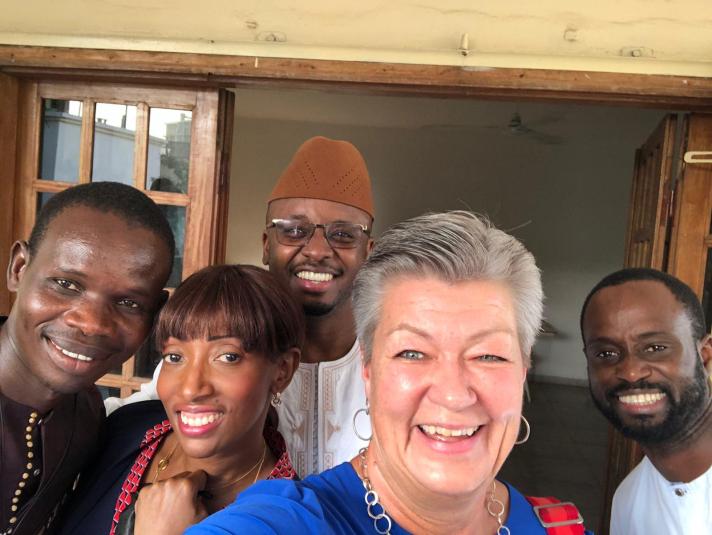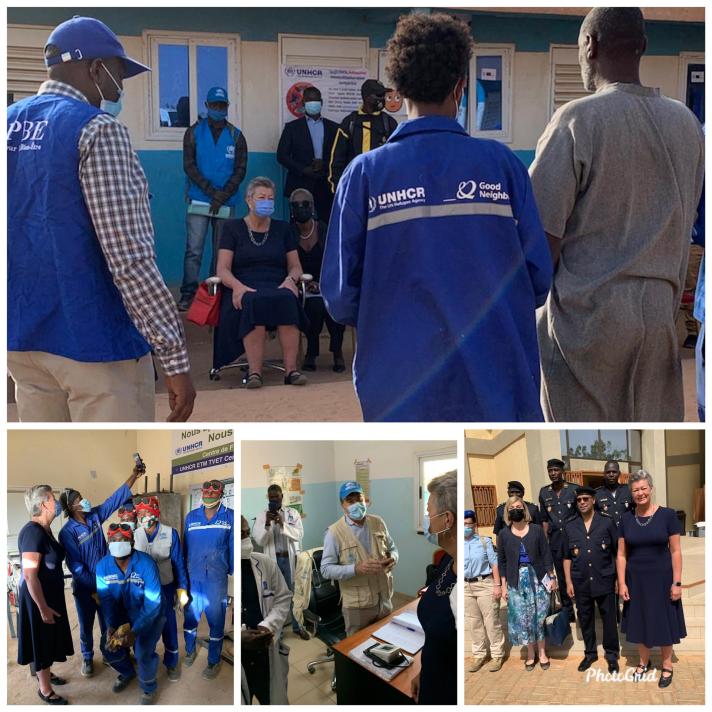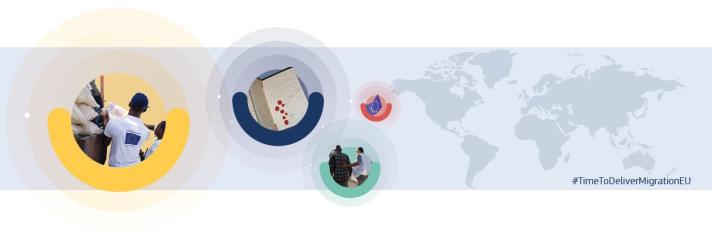My visit to Senegal and Niger last week was an investment.
It was a chance for me to show my own personal commitment on building security, and that of the European Commission, with our African partners. It was also a fascinating trip. Both in Senegal and in Niger I was encouraged with the joined-up policy approach to migration. Be it schemes like the one in Hamdallaye, Niger, to help vulnerable refugees especially those evacuated from detention centres in Libya. Or the inspiring story of Mariana Ba who came home to Senegal to start the institute of legal and real estate professions.
To fight organized crime, migrant smuggling, trafficking of drugs, weapon and goods, cooperation is essential. Not only between the EU member states, but also with third country partners.
Africa is our closest continent, and we have strong links and good cooperation in a wide range of areas. We need to broaden our partnership, both with countries individually and with the African Union.
This is the strategic backdrop to the missions to Senegal and Niger last week. Both countries are reliably partners in relation to the Sahel, a region with political instabilities and security threats.
In the capital of Senegal, Dakar, the discussions with President Makky Sall, Minister for Foreign Affairs Aïssata Tall Sall, Minister of Interior Antoine F Abdoulaye Diome and Minister of Armed Forces Sidiki Kaba, centred around deepening support on security and migration management. It is very important to supporting economic opportunities and jobs for Senegalese youth. Senegal is a country through which many people pass. Too many of those, and too many Senegalese too, attempt the most dangerous of crossings in an effort to reach the EU. A main objective in our cooperation with Senegal is to stop people from paying smugglers who could not care less if these desperate people live or die.
On the Atlantic coast, human smugglers try to send small boats filled with migrants to the Canary Islands. Such a journey takes at least a week. Boats have no protection against the sun, people are crowded with no possibility to sit or lie down, people carry minimal food and water in their pack, and there is no toilet. Often there is no gasoline for more than the first few days. Then the boat is drifting . Last year at least 1200 people died along this route. For example, the Spanish Coast Guard has rescued boats with fifty dead bodies and two living on board.
Senegal has done a lot already but more can be done to reduce and hopefully end this needless loss of life.
That is where Frontex comes in. Frontex has had a Liaison Officer in Dakar since January 2020. While I was there, I had discussions on finalising discussions for a working arrangement with Frontex and Senegalese border guards. This would cover information exchange, capacity building, and operational cooperation.
I also offered the substantive offer of starting negotiations on a Status Agreement with Frontex. Such an agreement, negotiated by the European Commission, would allow deployment of teams of standing corps and technical equipment. Senegal could be the first country outside the EU to conclude such a statement.
On overall migration management, we also discussed returns of Senegalese nationals. This is entirely consistent with my commitment to managing migration well. To have a well-managed migration system it is important that those who are not eligible to stay in the EU return to countries of origin. The return rate of Senegalese nationals remains very low.
Reducing irregular migration paves the way for more legal pathways and mobility schemes. We have a common interest to give young people better chances to go to Europe for work or studies, but also to come back to Senegal to be part of the development, development like the scheme Mariana has started.
In Niamey, the capital of Niger, I met with President Mohamed Bazoum Foreign Minister Hassoumi Massaoudou and Minister of Interior Hamadou Adamou Souley. Niger is facing many challenges such as food crisis.
Large-scale smuggling and trafficking in human beings and in drugs, irregular migration flows from Sub-Saharan Africa and instability from neighboring countries in the Sahel.
Added to this are over half a million refugees and displaced persons, many in the Agadez region. Seeing how the impact of - entirely just - polices to stop migrant smuggling impacts communities underscored the urgency of providing further alternative economic opportunities.
We visited The Transit Center for Migrants – EU/IOM Joint initiative started 2017 in Agadez. Since its launch, the centre has hosted and assisted more than 76.000 migrants, waiting to be returned or resettled.
In the UNHCR Emergency Transit Center in Hamdallaye, vulnerable refugees get temporary protection, health care and assistance while waiting for resettlement. Since 2017 more than 3.700 have been evacuated from detention centers in Libya. By cooperation between UNHCR and local communities young citizens living in Hamdallaye get work with the projects. A very good example of how to increase acceptance and support from local residents.
Overall, my mission was an investment in people, for a more stable future, for more established border management practices and for more legitimate economic activity.
#TimetoDeliverMigrationEU
This blog outlines the benefits of the proposals on migration tabled by the European Commission on 23 September 2020. For more detail on the New Pact on Migration and Asylum see below.
For More information
New Pact on Migration and Asylum | European Commission (europa.eu)
Commissioner Johansson’s speech at the High Level Forum on Resettlement, 9 July 2021
Commissioner Johansson’s blog: More legal pathways to the EU
DG Migration and Home Affairs website: Resettlement and other pathways to protection
Details
- Publication date
- 20 February 2022
- Author
- Directorate-General for Communication




